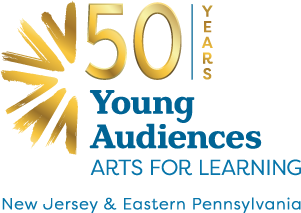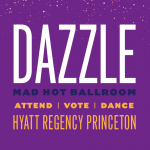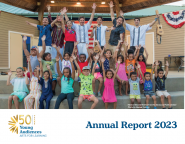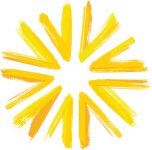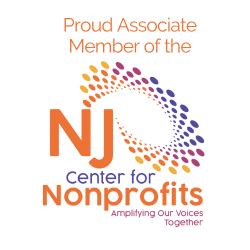Newly Revised Arts Integration Think and Do Workbook Released!
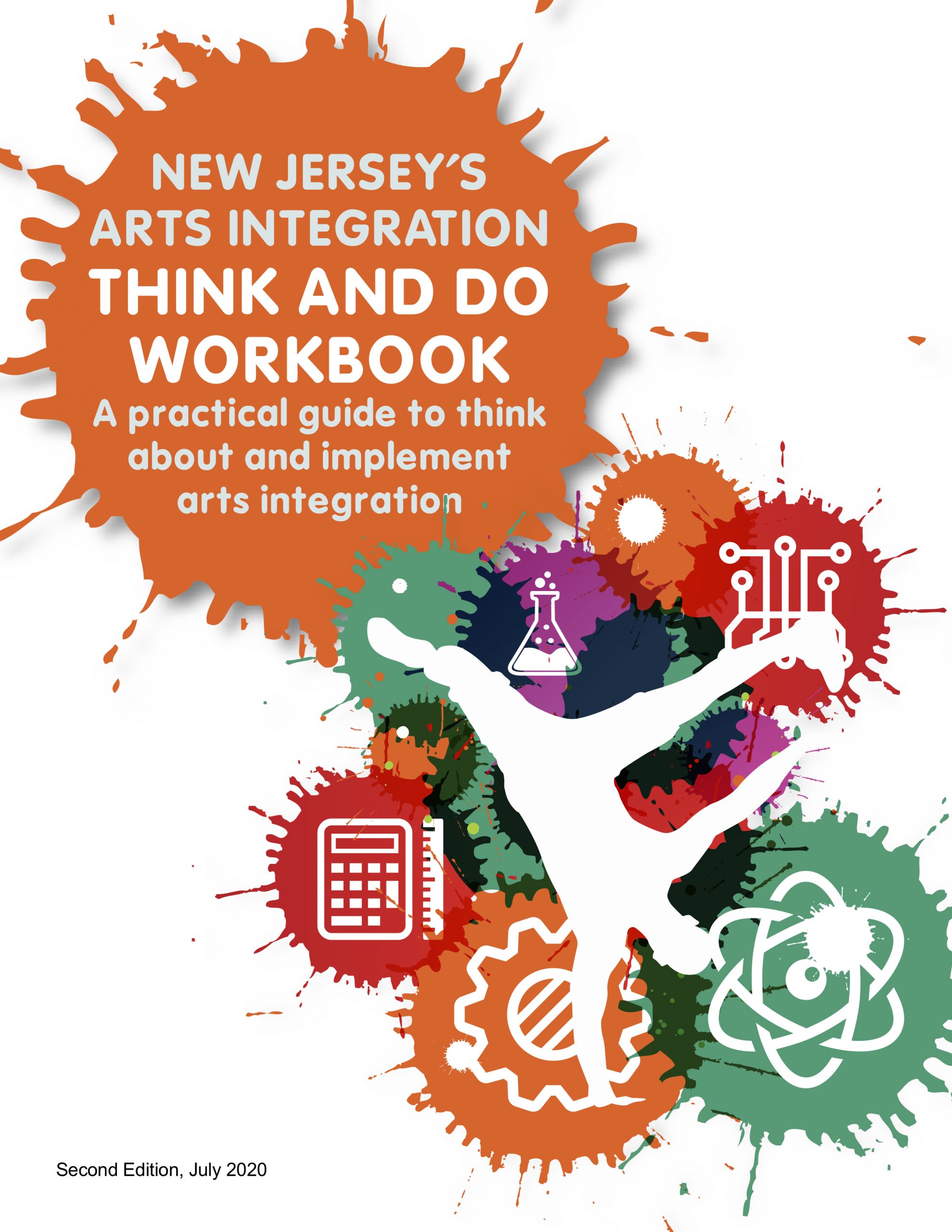
How to Use This Workbook
The New Jersey Arts Integration Think and Do Workbook was created by New Jersey arts integration practitioners to guide teacher practitioners and teaching artists with tools and strategies to support the development of a robust arts integration practice. We harvested best practices from thought-leaders championing the arts integration movement across the state and nationally. The Workbook is a user- friendly companion piece to the New Jersey Arts Integration User Guide, a checklist that you may also want to use to advance your arts integration work. You can find a copy at here.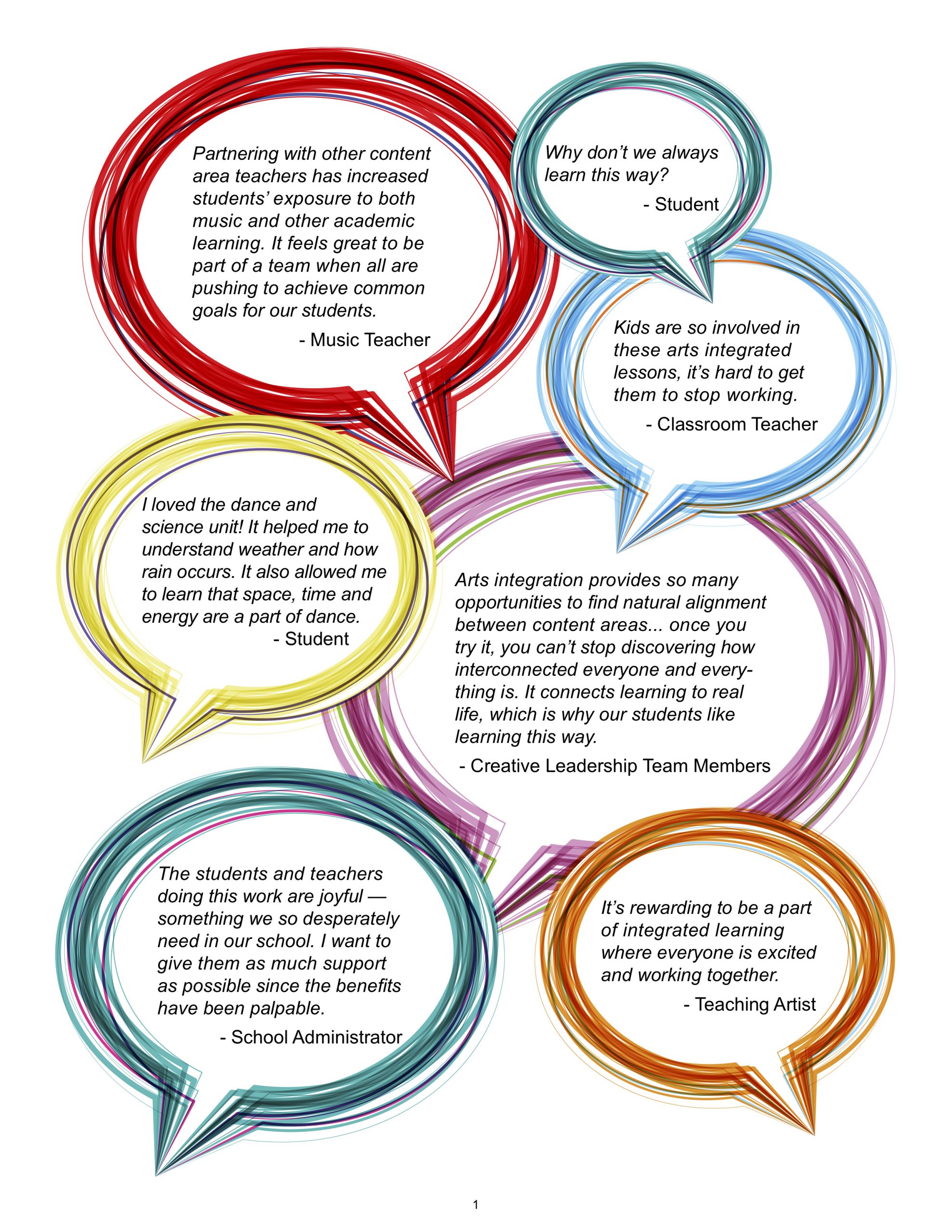
Think & Do Workbook Overview
Introduction –
- Why arts education? (Advocacy)
- Connection NJ VPA Standards & SEL Competencies (p9-10)
Chapter 1 – What and Why of Arts Integration
- Essential Components of AI (p15)
- Arts Education Continuum (p17)
Chapter 2 – Establishing a Creative Leadership Team & Shared Vision
- Creating your team’s shared vision (group exercise to guide the process)
- Building a vision statement exercise (time breakdown (bridge exercise, p30-31)
- Group Exercise – Collaborative Asset Mapping (p32)
- Group Exercise – SWOC Analysis (p33)
Chapter 3 – Exploring the Creative Self
- New exercises in ALL art forms & worksheets to guide them
Chapter 4 – Creative Teaching Strategies
- What does it look like in practice? (p51 – puzzle pieces)
- Four Guiding Questions on p52 to reflect on each strategy that is presented
- Creating a Safe Space to Implement Creative Teaching Strategies (p59)
- Culturally Responsive Arts Education Teacher Reflection worksheet (p60)
- Reflection Questions: Logistical safety, Physical safety, Emotional safety (p62)
- Creating a class agreement Exercise (p63)
- Student Feedback Techniques (p64)
Chapter 5 – Collaboration: Planning, Teaching, and Assessing
- Amazing shift for lesson planning
- Differentiated Collaboration (p68)
- Authentic Standards Alignment (p69)
- Cognitive Demand/Bloom’s Taxonomy: What’s your main event? (p69)
- Essential Questions & Enduring Understandings (p70)
- Planning for Assessing Student Learning: Type, Task, Cog. Demand, Criteria (p70)
- Addressed vs. Assessed Standards (p71)
- Objectivity vs. Subjectivity in Assessments (p71)
- Co-Teaching Approaches (p73-76)
- Building an AI Lesson/Unit (p77)
- Revised worksheets – AI Pre-Planning Worksheet (p79) AND AI Collaborative Planning Guide (p80-82)
- Reflections Questions for Lesson/Unit Delivery, Co-Planning, Co-Teaching, & Co-Assessment (p83)
Chapter 6 – Measuring and Documenting Impact
- Action Assessment Model (p87)
- Building a School/District Wide Assessment Plan (p88)
- Data & Data Collection Protocols (p89-90)
- Case Study: Visual Arts and Math (p91-92)
- AI Implementation Rubric, great to use with your Creative Leadership Team (p93-98)
- Goal, Action Steps and Timeline connected to Implementation Rubric (p99)
Chapter 7 – Deepening the Work & Tools You Can Use
- Tool & Resources for each chapter
- Glossary of terms found throughout the workbook
- Sample Completed Worksheets
Acknowledgements:

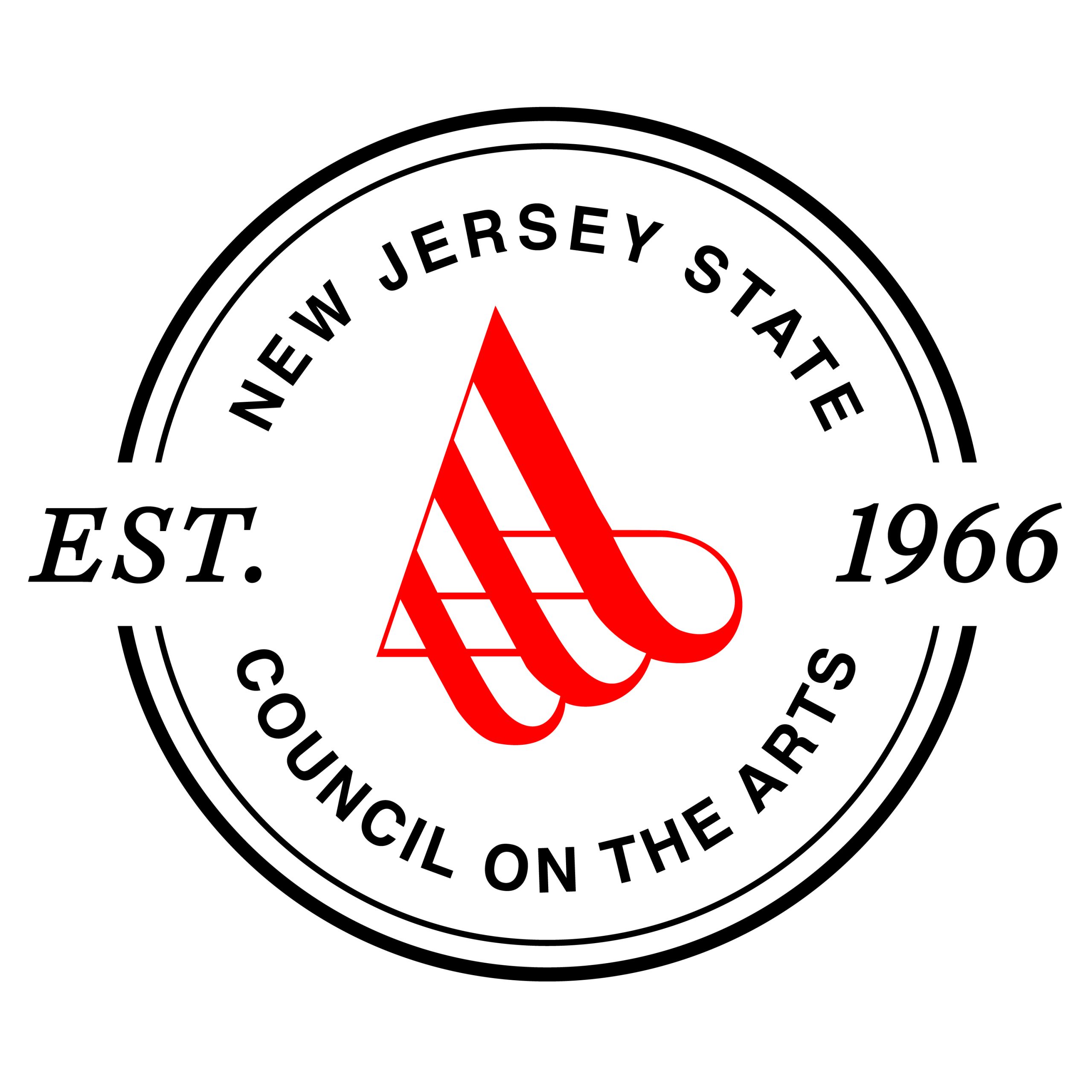 Special Thanks
Special Thanks
Crayola CreatED, Institute for Arts Integration and STEAM, Kennedy Center, MindPop, Perpich Center for Arts Education, and Prince George’s County Public Schools for sharing their expertise and materials.
Contributors to this Workbook include representatives from Appel Farm Arts and Music Center, Foundation for Educational Administration, Geraldine R. Dodge Foundation, Bridgeton Public Schools, Hopatcong Public Schools, McCarter Theatre, Arts Education New Jersey, New Jersey Department of Education, Young Audiences Arts for Learning NJ & Eastern PA, teachers, administrators, and teaching artists.
Writing Committee
Eloise Bruce*, Maureen Heffernan*, Sanaz Hojreh*, Wendy Liscow*, Shawna Longo*, Michelle L. Marigliano*, Erica Nagel, Dr. Mary M. Reece*, Kira Rizzuto*, Dr. Dale Schmid, Willa Spicer, Kerri Sullivan*, Dr. Deborah E. Ward*
*2nd Edition
This workbook is part of an extensive multi-year Arts Integration Initiative of the Education Docket of the Geraldine R. Dodge Foundation.
You can share your ideas and feedback with the writing team here.
For more information on our arts integration professional learning programs contact Michelle Marigliano at 866-500- 9265 or [email protected].
